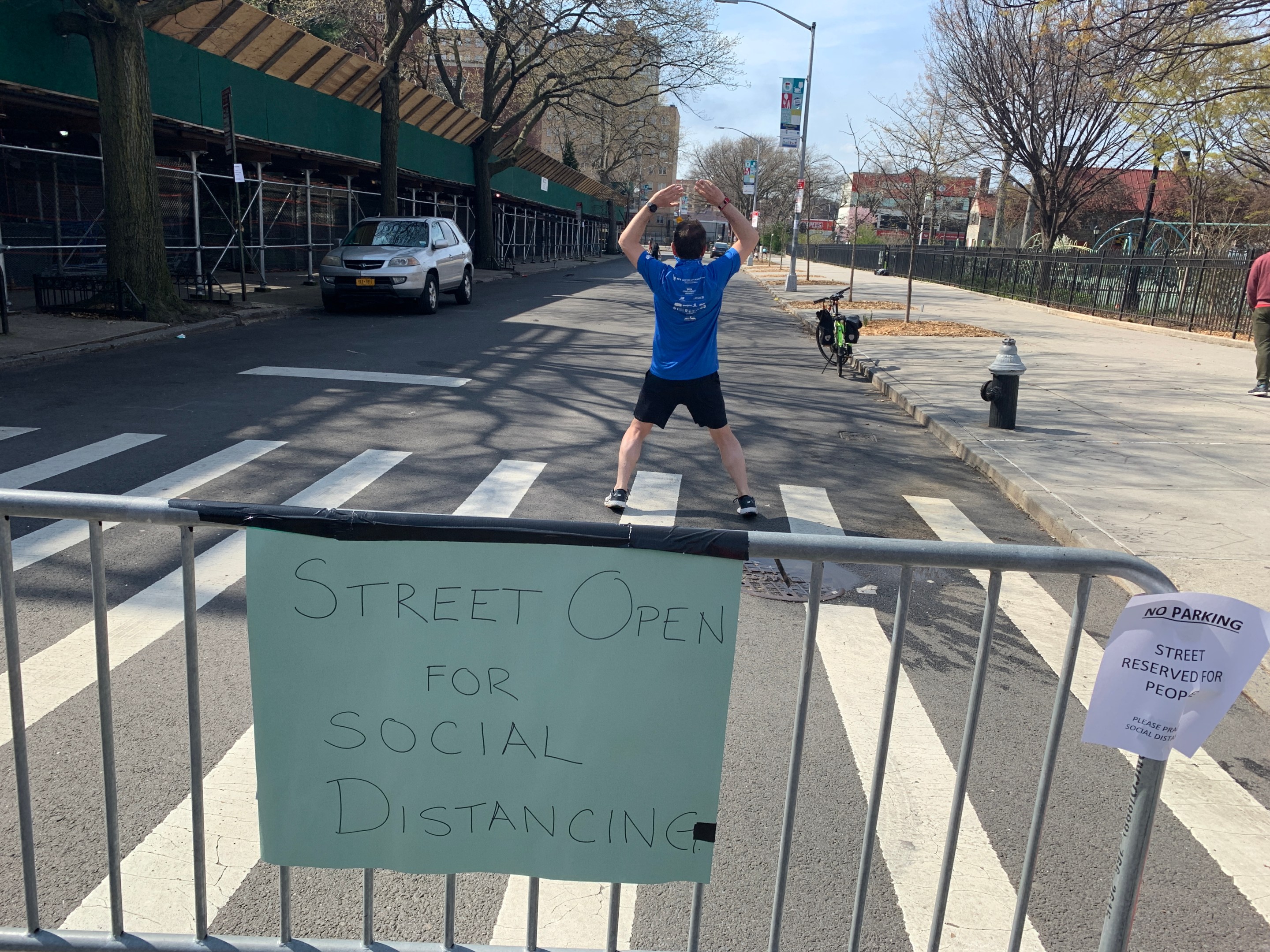Classes may be coming soon to a street near you.
As of this week, the city has approved the plans of 247 schools to use outdoor facilities for in-person activities because of the COVID-19 pandemic, according to the Department of Education.
The so-called outdoor learning program, which Mayor de Blasio announced last week, allows schools to spread out into playgrounds, parks, sports fields and streets (such as those that are not emergency or bus routes) in order to provide more room for social distancing.
So far, all the schools granted approvals will be operating outdoors on their own property, but the DOE said that it had received applications requesting the opening of streets; the department is reviewing proposals seeking space in streets and parks in collaboration with the Department of Transportation and the Parks Department and should know more by the end of the week, according to a DOE spokeswoman.
The announcement of such approvals are eagerly awaited by safe-streets and fresh-air advocates, who are keen to reclaim space near school buildings from car-drivers, who killed 10 children in crashes in 2019, according to a Streetsblog analysis. The program also might liberate some school playgrounds that have been used as parking lots for private vehicles by teachers. An investigation published last week in Streetsblog showed that as many as one in 12 primary schools allow teachers to park in their playgrounds — although Hizzoner last week refused to mandate that educators vacate the outdoor space.
The mayor, meanwhile, pushed back forcefully against critics who say that the lack of centralized funding for the outdoor learning program will add to the many disparities among rich and poor schools. In an interview on Friday on the Brian Lehrer Show, the mayor said that money is not an issue for the program, because principals can use schoolyards, courtyards and streets without incurring costs. And he recommended that well-resourced parent-teacher associations share funds with those of poorer schools, in order to enable the latter to purchase gear for outdoor learning, such as tents.
"I’m losing patience, respectfully” with people “who don't know what the hell they’re talking about,” de Blasio told Lehrer, adding, “There’s lots of ways to do outdoor [learning] that don’t cost a thing. And a PTA that does have a lot of money should share. … If you actually are serious and you're a wealthy PTA, share with a school nearby that doesn't have a lot of money.”
One such critic, Brooklyn parent activist Justin Krebs, the co-author of a Streetsblog op-ed on the subject, shot back that the mayor was making a mistake by substituting “charity ad-hoc arrangements for deep solutions.”
“Are city agencies that manage our roads and parks being given a directive on how to equitably support these opportunities across schools?” he said in an email. “Are principals who have been more focused on teacher retention, food security, access to technology going to be given the time and support to take advantage of outdoor opportunities, which might not be in the top-five crises they are trying to solve right now?”
Krebs’s co-author, Cateia Rembert, added: “We are asking for what we've always been asking for — and that’s guidance and answers.”
School starts on Sept. 10.






